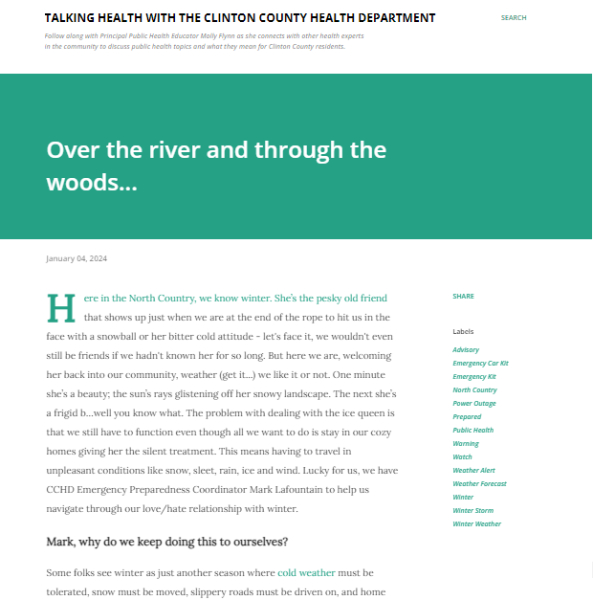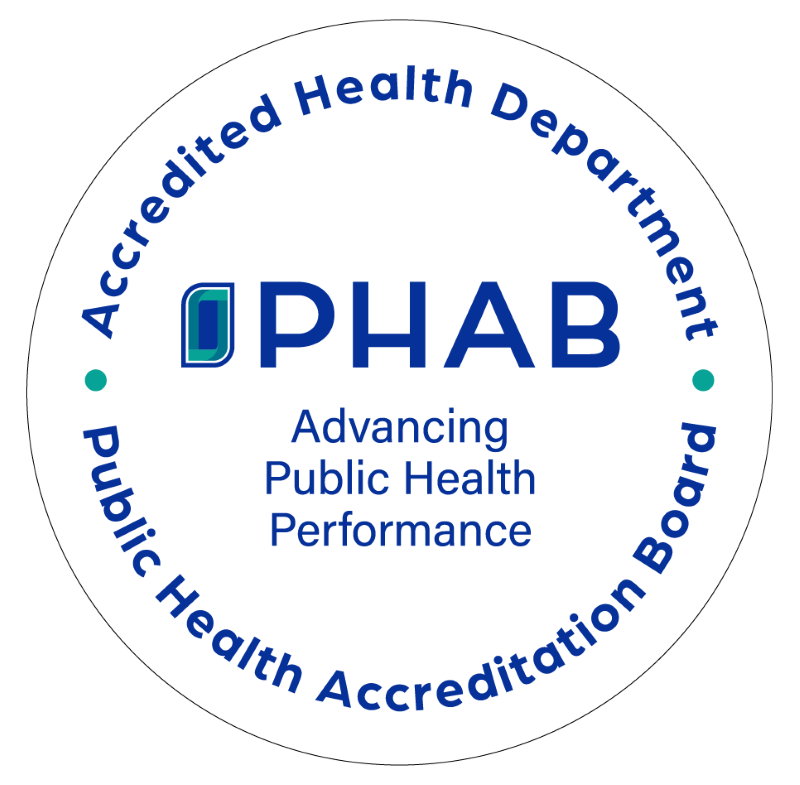Talking Health
Have you ever heard about a pressing health topic and thought, “but what does that mean for me?” Follow along with CCHD staff as they discuss local health and safety issues with local experts and identify what Clinton County residents really need to know. Click here to see all our blogs.
This month's topic - Holiday Mental Health
The holiday season brings with it nostalgia, excitement, joy and (sometimes) comfort. Let’s face it, it’s hard not to feel something when the neighborhood is lit up at night. Combine high expectations, with loneliness, stress or grief and it is no longer the most wonderful time of the year. In fact, NAMI reports that 24% of people with mental illness report the holidays make their conditions worse. Now, the holiday blues are different from mental illness, but even short-term mental health problems need to be taken seriously. They can lead to bigger things down the road. With us fresh off of Thanksgiving and the delight (and dysfunction) that can bring, this month we enlisted the help of our friend Richelle Gregory. Richelle is the Director of Community Services at Clinton County Mental Health and Addiction Services.
Richelle, what make the holidays a difficult time for so many of us?
The holiday season brings on additional stress for many of us. Family commitments, financial pressure and an overbooked social calendar can be overwhelming....... read more
Previous topics include:
- Food Security & Dontations with Dorothy Latta
- Fire Safety & Prevention with Eric Day
- Opioid Use in the North Country with Carrie Coryer
- Chest/Breastfeeding with Mallory Green
- Early Childhood Development with Alexis Grennan
- Rabies with Amanda Masten
- Ticks & Tick-Borne Illness with Dr. LeeAnn Sporn
- Food Waste Reduction with Kayleigh Raville
- Poison Prevention with Maryann Barto
- Heart Disease with AJay Keyser
- Winter Weather with Mark Lafountain
Updated 12/06/2024


































